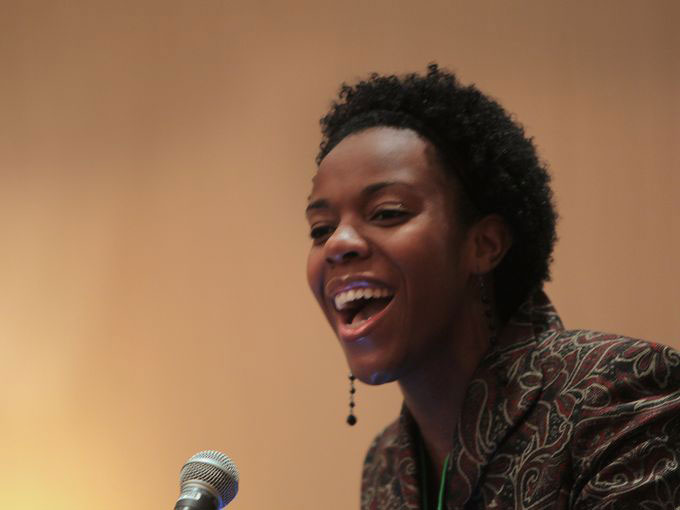This is the final in a three part series of sermons delivered during the Academy of Preachers by academy members James W. Dennis, Lauren McDuffie and Shantell Hinton.
 The Academy of Young Preachers has become a sacred and special space for me. As someone who has continually questioned my own call to ministry as a young Black woman, there are many times I feel that we do damage to ourselves and to our faith when we don’t live fully into our calls. Yet, the National Festival of the Academy of Young Preachers provided a place in which to see myself in the passion, power, and preaching of other young people. This year’s theme of “Questions of the Soul” could not have been more fitting in that for many of us, questions of the soul are the precise precursors to how we answer our calls in the first place. I am still humbled to have been a part of such a beautiful ecumenical setting in which there was true friendship, fellowship, challenges, and critiques. I pray that all of us continue to push each other to walk boldly in our own faith traditions and continue to proclaim the gospel of Truth.
The Academy of Young Preachers has become a sacred and special space for me. As someone who has continually questioned my own call to ministry as a young Black woman, there are many times I feel that we do damage to ourselves and to our faith when we don’t live fully into our calls. Yet, the National Festival of the Academy of Young Preachers provided a place in which to see myself in the passion, power, and preaching of other young people. This year’s theme of “Questions of the Soul” could not have been more fitting in that for many of us, questions of the soul are the precise precursors to how we answer our calls in the first place. I am still humbled to have been a part of such a beautiful ecumenical setting in which there was true friendship, fellowship, challenges, and critiques. I pray that all of us continue to push each other to walk boldly in our own faith traditions and continue to proclaim the gospel of Truth.
Shantell Hinton MDiv1
Sermon Title: Am I My Brother’s Keeper?
Sermon Text: Genesis 4:1-16
Am I my brother’s keeper? Am I my brother’s keeper? No matter how you ask this question or how you bring it up, there is an automatic association with Cain and Abel. Without even opening up a Bible, I surmise that most people are aware of this question as the audacious response of a jealous-driven, murderous Cain. Cain and Abel have certainly found their place in the minds and hearts of many as a folk-tale. It seems that this age old story of murder has been printed indelibly on the brains of our society almost as if it is a nursery rhyme rather than sacred text. Christians and non-Christians alike reference the story of Cain and Abel in music, books, and poetry. And while I am not one to look down upon Biblical stories and themes being communicated to the masses, I am yet very concerned with how much we, in the body of Christ, have allowed cliché caricatures to overshadow the transformative truth of the Gospel of Christ. I agree that the story of Cain and Abel includes the consequences for sin, jealousy, anger, and murder. Yet, far too often I believe we look at this text as the smoking gun proving Cain’s culpability for murder as result of his jealousy rather than experiencing the text as the parts of a puzzle piecing together Cain’s capability to be human in the face of rejection. I believe that we must peel ourselves away from the surface of merely seeing Cain and Abel as the story of the first murder. Instead, we must treat this text as if it is a murder mystery. Not because we don’t know what happened, but because we want to see and feel and understand how it happened. We must place ourselves, our own vulnerabilities, and livelihoods at the center of this text and put our pre-conceptions and critiques on the periphery.
Click here for the complete sermon.